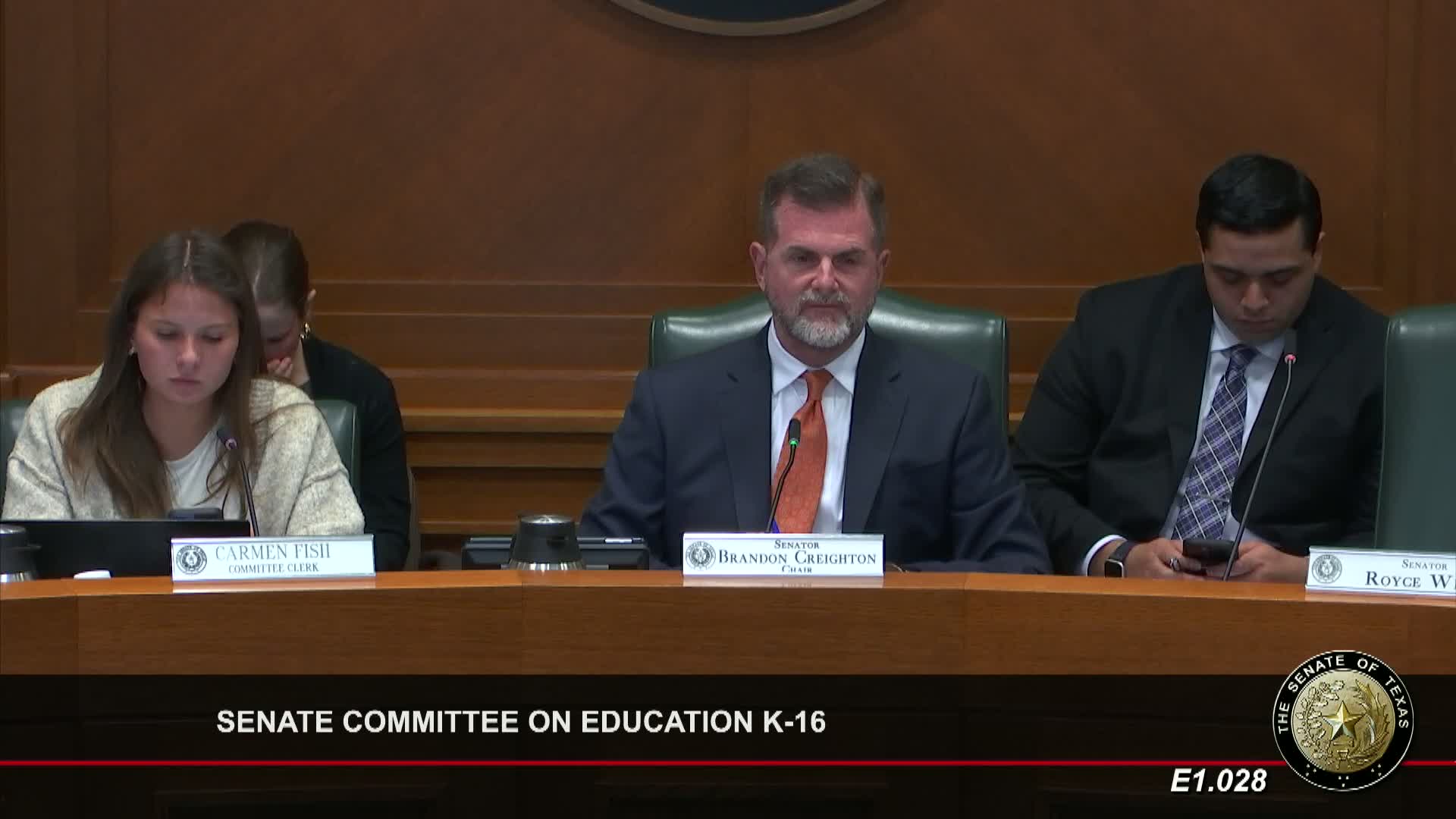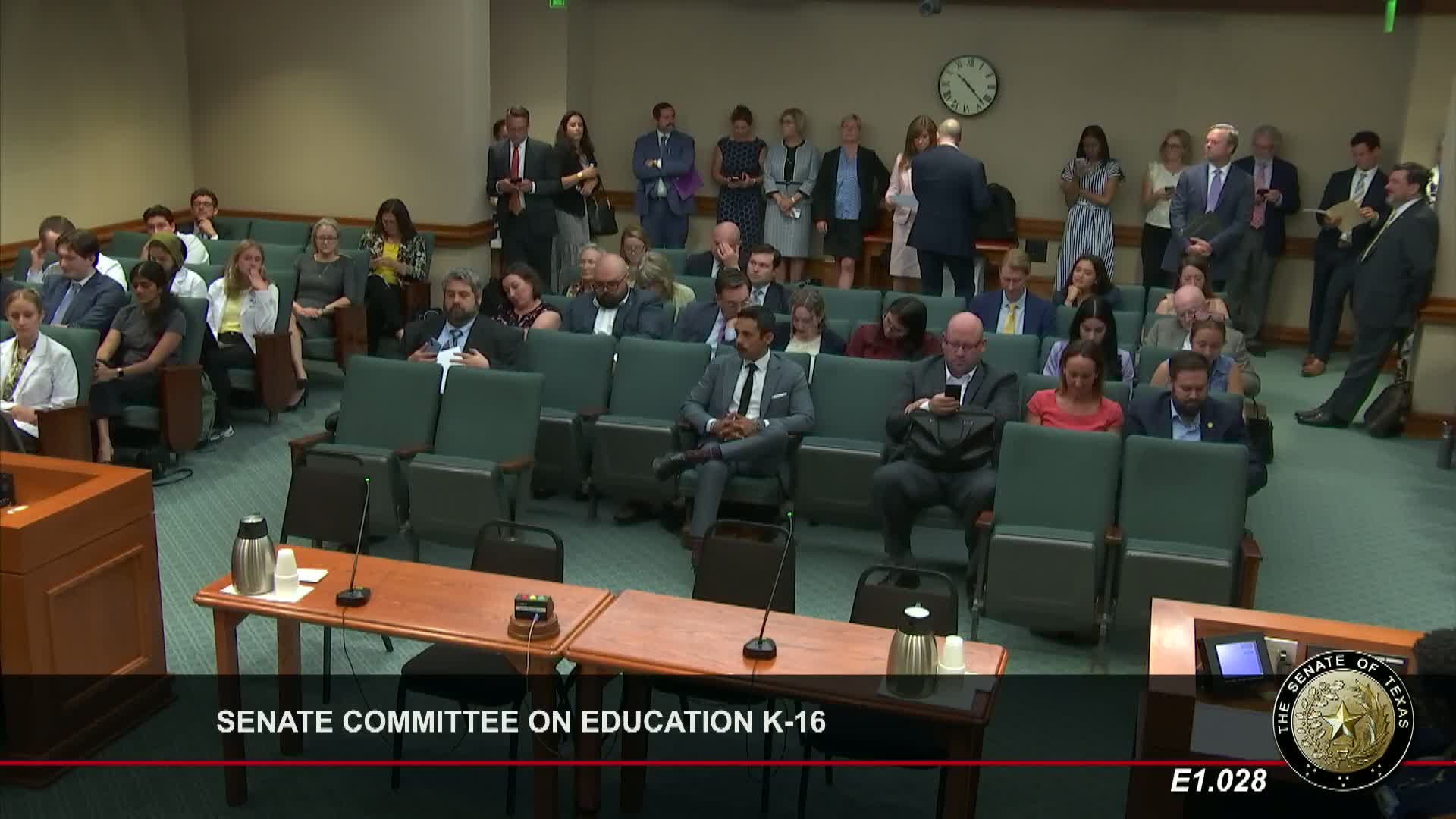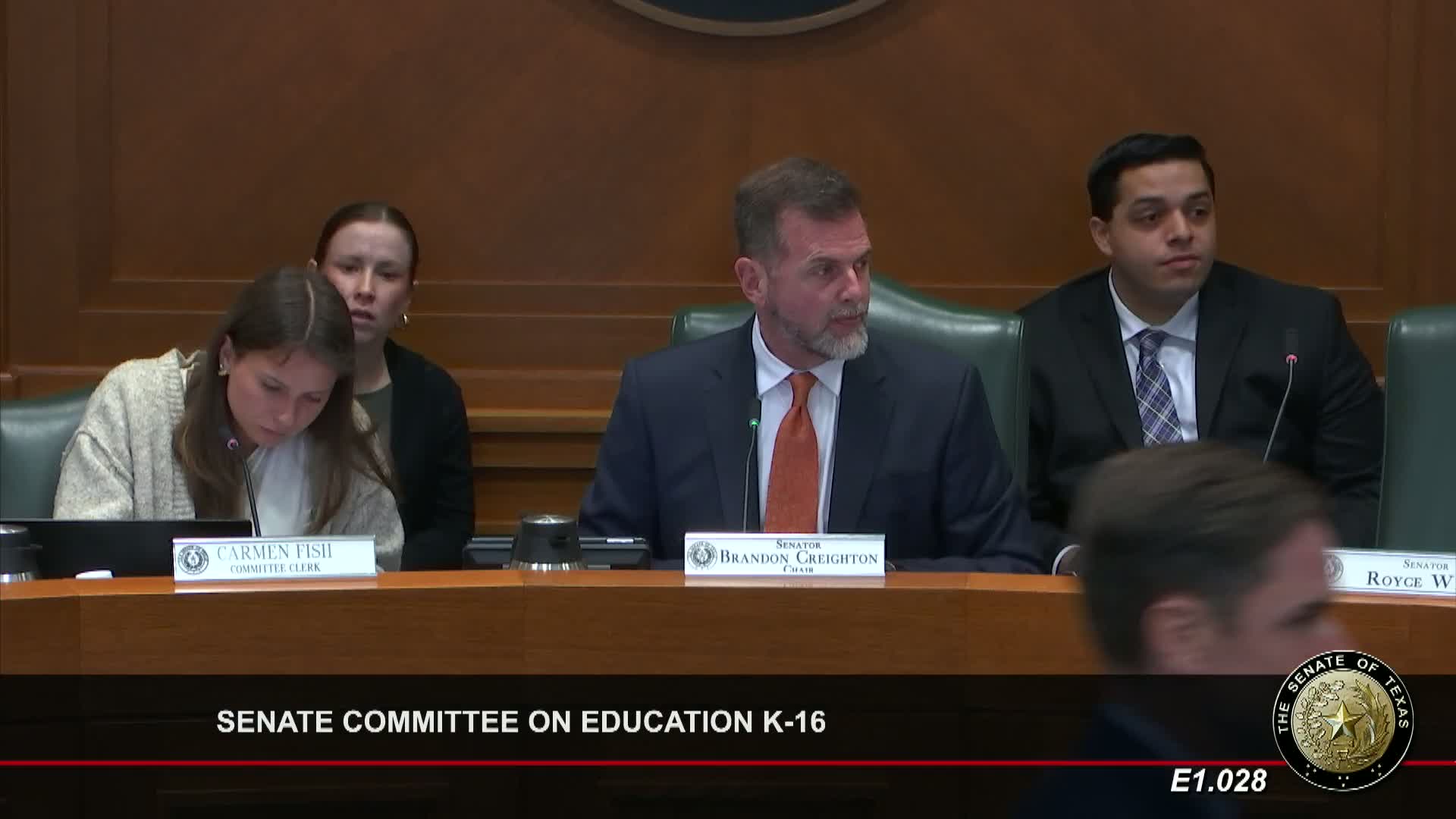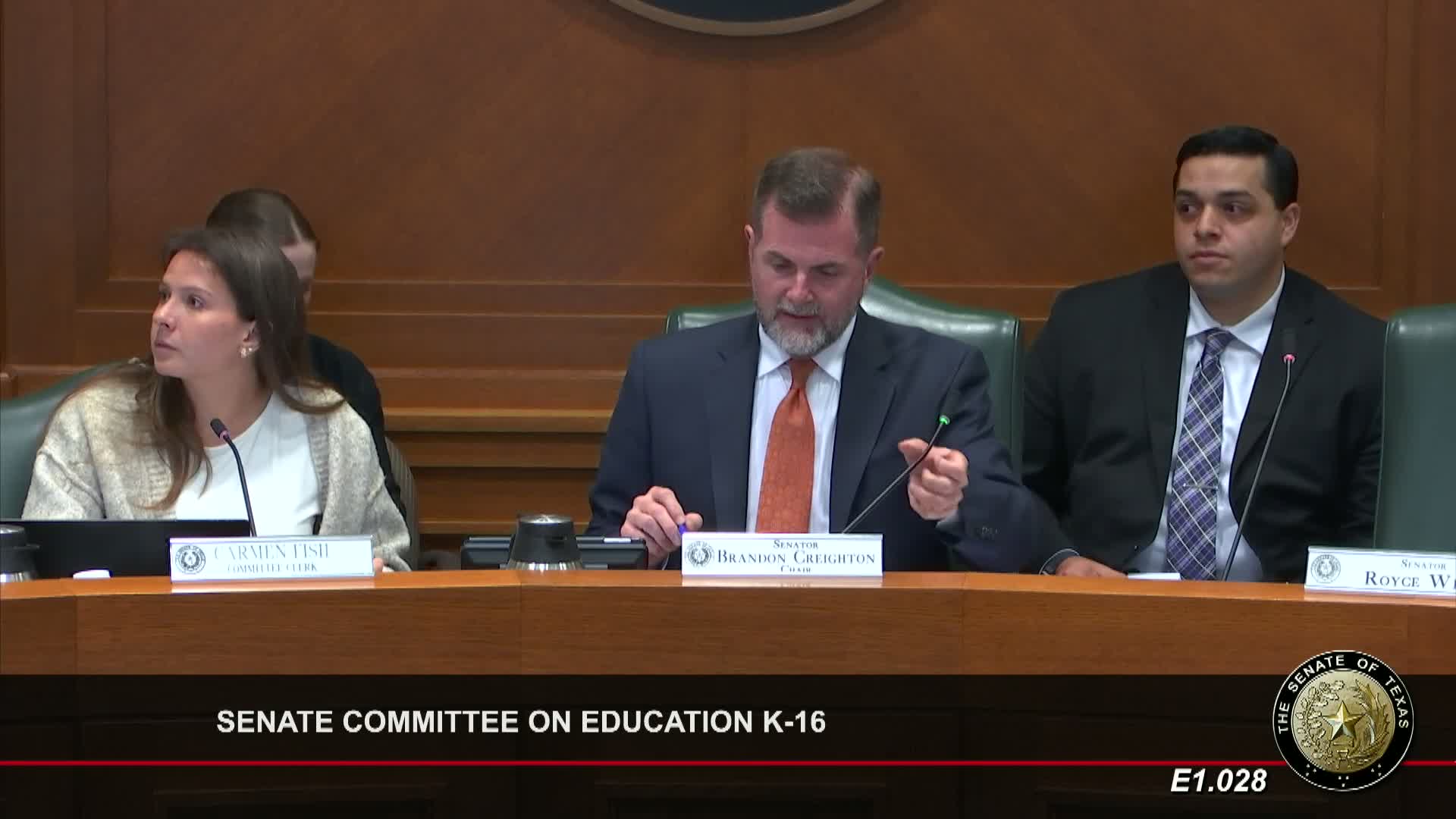Article not found
This article is no longer available. But don't worry—we've gathered other articles that discuss the same topic.

Senate adopts committee substitute for teacher job‑satisfaction commission after debate over diversity language

Bill would codify governmental immunity for two charter school categories; lawyer says it mirrors existing law

Committee hears support and cautions on applied sciences pathway bill for high schools

